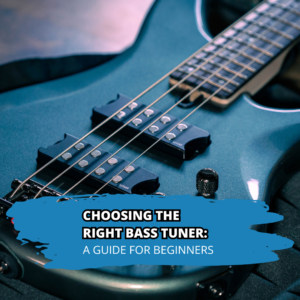For adult music students, performances can seem particularly nerve-racking. As adults, we tend to be more self-conscious than a child might be, and as a student, we are prone to make mistakes. While this is normal, it makes for a terrible case of nerves before a recital.
You may not be able to make the nerves go away, but there is plenty you can do to set yourself up for success, so that any nervousness you feel during performance has a minimized impact on your playing. With that in mind, we’ve put together a list of 7 great tips to help you conquer your performance.
1. Practice until you can’t stand your song – then practice some more
The key factor to a successful performance is repetition. The more you practice, the more second-nature the song becomes, so that when you do come down with a case of the jitters, your brain still knows what to do.
2. Practice at 110% tempo
Practice your song at 110% of the normal speed. Once you get on stage, play your song at regular speed. Your nerves will inevitably slow your cognitive function but you’ll still feel in control and confident that you can hit all the notes correctly.
3. Get used to an audience
Having an audience can be extremely off-putting when performing. Once you have successfully mastered your recital piece, it’s time to work on your stage presence. Invite a few friends or family members to sit and watch you practice your piece. Do this a few times, if possible, choosing different crowds each time. This will help you adapt to the unexpected.
4. Practice chaos
Anything can happen during a performance, and the show must go on if it does. From an out-of-tune guitar to cold temperatures slowing your fingers down, try to step outside your comfort zone and acclimate to different situations. This way, when these situations arise you’re not as caught off guard.
5. Have a warm-up routine
Your instructor can help you develop a warm-up routine that works for you. Part of this is to help establish a ritual to prepare your mind to perform. This might be a few moments of silent meditation, affirmations or some other mental trick to get you in the right frame of mind. The other part is to musically warm up. This might include tuning your instrument, doing finger and hand exercises, running your hands under hot water, and so forth. Developing such a routine goes further than you might think in bringing you out of the mundane errand-filled world and into the mindset of a performer.
6. Start easy
If you’re playing more than one song during the recital, start with the easier song first. You are probably going to be the most nervous when you first begin, and starting with the easiest piece first helps you gain more confidence for the next piece. It also helps you create a great first impression.
7. Go to bed on time
Missing sleep can diminish your ability to play successfully. When you’re tired, you are slower, less alert and prone to mistakes. Not only that, but you will seem “low-energy” to the audience and they’ll be less engaged in your performance. However, it is not just the night before that counts. If you’re chronically under-slept, you create a sleep deficit. Try to get 8-10 hours of sleep every night for the 2 weeks leading up to your recital, if you are able.
If this is your first or second performance, don’t be too hard on yourself. Even with the most preparation, being on stage can be uncomfortable for some people and you’re likely to make some mistakes here and there. Most of the time, the audience will not know. As you gain more experience on stage, performing will come easier for you. You might even like it.








